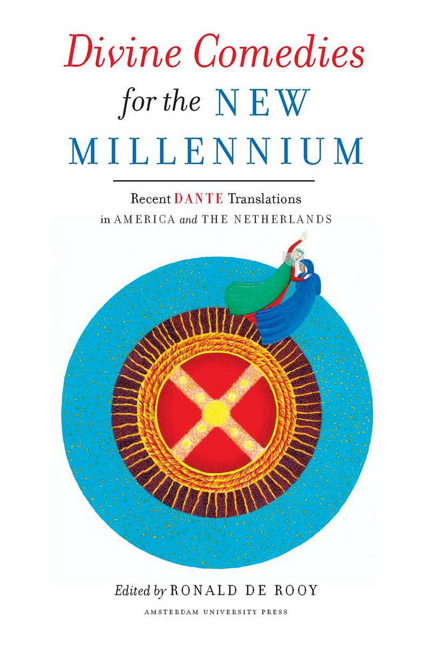Book contents
- Frontmatter
- Contents
- IntroductionDivine Comedies for the New Millennium. Humbleness and Hubris
- The Translations of Dante’s Comedy in America
- Translating Dante into English Again and Again
- ‘Getting Just a Small Part of it Right’
- The Poet Translated by American Poets. In Search of the Perfect ‘Trasmutazione Musaica’
- Ciò Che Potea La Lingua Nostra. One Hundred and More Years of Dante Translations into Dutch
- Translating Dante’s Translations
- Notes
- About the Contributors
- Selected Bibliography of American and Dutch Dante Translations
- Index of Names
- Miscellaneous Endmatter
‘Getting Just a Small Part of it Right’
Published online by Cambridge University Press: 23 January 2021
- Frontmatter
- Contents
- IntroductionDivine Comedies for the New Millennium. Humbleness and Hubris
- The Translations of Dante’s Comedy in America
- Translating Dante into English Again and Again
- ‘Getting Just a Small Part of it Right’
- The Poet Translated by American Poets. In Search of the Perfect ‘Trasmutazione Musaica’
- Ciò Che Potea La Lingua Nostra. One Hundred and More Years of Dante Translations into Dutch
- Translating Dante’s Translations
- Notes
- About the Contributors
- Selected Bibliography of American and Dutch Dante Translations
- Index of Names
- Miscellaneous Endmatter
Summary
As a poet, I found translating Dante's Commedia both easier and much harder than working on my own poems. How comforting not to have to wait for the Muses to strike with an idea, an image, or a phrase, but to have the subject matter with all its complexity of thought set in an orderly arrangement before my eyes, ready to be converted. How pleasing not to have to labor over metaphors, similes, or symbols, but to have the very words set before me in all their glory, waiting to be translated. But there's the rub. Ignoring the difficulty of understanding the precise intention or layers of meaning Dante presents even to Italian readers, after we have found the English words that communicate his thought, we have to ponder whether the sound of the words expresses and reinforces their meaning.
‘But There's the Rub’
Except for Latinate words such as maestro/master, Italian and English are often very far apart. For example, the Italian word ‘fiamma’ opens up at the end like a flaming fire indeed, while our English ‘flame’, although a cognate, closes in on itself with an /m/-sound as if it were dying out. Thus a poet, translating from Italian into English, must labor not only to match Dante's meaning, but also to select the word that sounds like it, or at least does not contradict its essential meaning.
Another problem is that the ‘dictionary’ equivalent of a word is not always reliable in conveying the nuances of meaning from one language to another. In poetry, the connotations surrounding a word are as important as its precise denotation. The tone or mood of a word is part of what is communicated. In addition, the conscious or unconscious associations we bring to a word may differ from one language to another, varying with the different literary or historical associations evoked. For example, the phrase I used earlier: ‘there's the rub’, familiar to English-speaking people as an often repeated phrase from Hamlet's soliloquy, has no literal equivalent in Italian. The dictionary equivalents of ‘to rub’, such as ‘fregare’, ‘sfregare’, ‘strofinare’, and ‘stropicciare’, even if changed into a noun, do not apply here. We must resort to something like: ‘qui sta il punto’ to render the meaning.
- Type
- Chapter
- Information
- Divine Comedies for the New MillenniumRecent Dante Translations in America and the Netherlands, pp. 49 - 54Publisher: Amsterdam University PressPrint publication year: 2003

